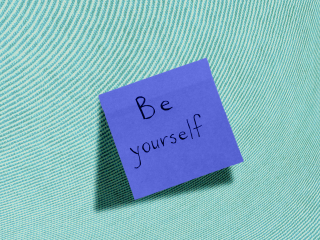You’re an adult. You have a bank account and very important appointments. You’re a regular in therapy. You’ve got ~responsibilities.~ But whenever you travel home for the holidays, it feels like 9th grade again. You’re regressing—holiday style.
Regression can look like a lot of things: Being less responsible for your actions (and/or laundry), noticing insecurities you’ve worked so hard to move past, or participating in dysfunctional family dynamics that don’t work for you anymore. To be clear, regression isn’t a diagnosis or anything like that, but it is a concept in psychology that describes going back to an earlier, familiar state in your life—and it can kick in as a coping mechanism when you’re stressed, explains licensed psychologist Ryan Howes, PhD. To make ourselves feel safe, we regress by reverting to the tools and behaviors we used to self-soothe back in the day, he adds.
But even if you’re not that frazzled, regression can happen anytime you’re back in the place you grew up or around people and things that remind you of old times. “We are creatures of habit, whether we realize it or not,” says Dr. Howes. “If we’re in that same setting, we have more of a tendency to act and respond the way we did in the past."
To be fair, you’re probably not the only one doing it, explains Dr. Howes. For example, if you’re the youngest, you might be babied by your parents because they regress to treating you as The Baby while you’re home for the holidays. You’ve definitely matured, but it’s what they’re used to, he adds.
This isn’t always a bad thing though. “If it feels fine to spend a week being taken care of, that’s no harm, no foul,” says Dr. Howes. But if you’re acting in a way that doesn’t align with the you you are now, you don’t like how others are treating you, or you know returning to reality is going to be 10 times harder after kicking back for so long, it might be a good idea to get a handle on holiday regression.
So, let’s talk about how you can avoid slipping back into outdated versions of yourself when you head home.
Remind yourself who the eff you are (now).
Doing a lil refresh on the difference between the things you used to do and how you live now can set you up to be the adult version of you with old friends and family, Dr. Howes says. Seems easy enough, but it’s a step most of us don’t even think about before journeying back. Then we find ourselves, “swept up in old arguments and feel disappointed afterward,” he adds.
Think about how you’ve changed since you were last home or even since you were a kid. What very adult changes have you made that you want to stick with when you’re back? How are you different from what your family would expect you to be?
Maybe you’re getting good at explaining how you really feel instead of bottling it up like a teenage people-pleaser. Or you can spot someone deflecting or projecting like it’s your sport—unlike your kid self who’d get sucked into pointless arguments. Just thinking about this can set the tone, but if you’re more of a visual person, write it down as a list, Dr. Howes suggests. You can even role-play any anticipated interactions with a friend or therapist, he says.
Make authenticity your goal.
Keeping up the dysfunctional way you used to behave or respond to conflict maintains the status quo, making everyone (maybe even you) feel comfortable in the short term. However, healthy, real relationships are built on showing people who we are now, says Dr. Howes. “People grow and change throughout their life, and if we don’t reflect those changes, we’re not letting people in,” he explains. “We're presenting a false image to other people, and it can get in the way of the relationships.”
Basically, when regression happens, you’re not giving your friends or family the opportunity to interact with this new version of you. It’s possible you’ll get along better than before, but you won’t know unless you try.
Try to keep up the important parts of your routine.
Just like going on vacation, being in a different space—even your childhood home—makes it hard to uphold the good-for-you things you do every day. Sometimes, skipping those habits can make you feel even less like the person you are now.
To combat that, try to do the stuff in your routine that makes you feel most like yourself, Dr. Howes suggests. That silly mental health walk, listening to your news podcasts as you brush your teeth, or just eating the same breakfast can keep the adult vibes going. When you feel like yourself, you’re more likely to act like yourself.
Set boundaries.
You might be perfectly OK letting people assume the family roles they’ve had for years. Your older sister taking charge of the shopping list for Thanksgiving dinner even though you can handle it? Cool. Fine. Whatever. But when your family’s actions make it seem like they maybe (or definitely) don’t respect you as an adult, it’s boundary-setting time.
For the uninitiated, boundaries are basically guidelines for how you’d like people to treat you backed up by consequences for when they don’t. This can sound scary, but it might be the best way to enjoy the parts of your relationships that you like (family dinners) without the stuff that strains your bond (food shaming).
Buffering a boundary with the positive reasons you’re putting it in place can make it feel less weird, says Dr. Howes. That might sound like, “I really love going out to dinner with you guys, but it makes me feel bad when you say judgey things about what I’m eating. If you can’t stop doing that, I might have to sit the next one out even though I’d really miss spending time with you.”
Take a beat before reacting.
Regression can be a knee-jerk reaction—and you might be low-key shocked when it happens, notes Dr. Howes. Slowing down in those moments can help you behave in a way that makes Current You proud, he explains.
For example, if your dad says that thing you know he knows gets under your skin, take a breath instead of reacting with an equally brutal dig. Try to see the situation as an outsider or just your adult self—and then respond. Score some bonus adulting points by using an “I” statement to express how they made you feel, says Dr. Howes. “I feel hurt when you say things like that,” is a more mature delivery than, “You’re always such an asshole!” It’s hard but definitely possible.
Also, being the bigger person amongst those who continue to perpetuate dysfunctional behavior from the late 90s can piss you off. So consider this permission to burn that rage in whatever healthy way makes sense, says Dr. Howes. Channel it into a guided meditation, play angsty music from your iPod, grab a day pass to a gym, or steal any of these other respectable ways to manage your anger.
Try different traditions.
It might be time to engage with each other in fresh environments, says Dr. Howes. "When families revert to old patterns over the holidays, it’s often because they are either longing for the past or unaware of how to relate to each other in a new way,” he says.
Take the reins and suggest an alternative option for spending time together. That could be something that showcases your adult-ness or any activity that enables them to see how relating to this new version of you can be fun even if they miss the past.
You could make everyone dinner if you’ve never done that before, take your mom out shopping, or organize a day trip somewhere close. Whatever you do, the point is to help everyone “relate to each other as adults, respect each other’s boundaries, and fully enjoy who we are instead of who we used to be,” Dr. Howes says.
Wondermind does not provide medical advice, diagnosis, or treatment. Any information published on this website or by this brand is not intended as a replacement for medical advice. Always consult a qualified health or mental health professional with any questions or concerns about your mental health.





